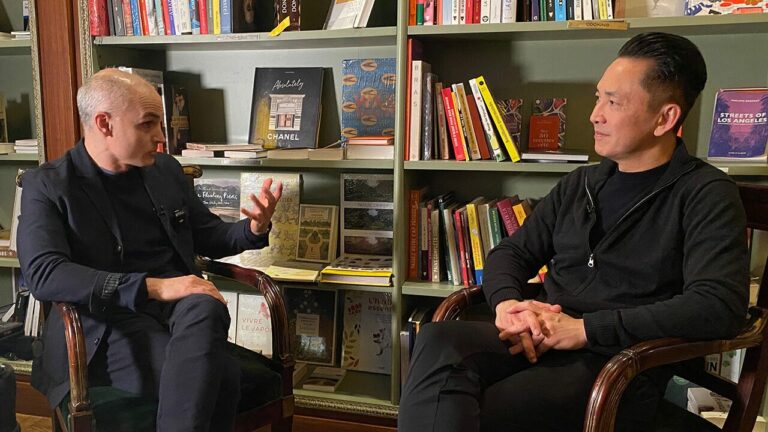SINGAPORE – To attempt to sum up the inimitable academic and activist Gayatri Chakravorty Spivak would be folly, but four words she uttered on Nov 19 come close: “Practice is a theorising.” The 81-year-old has spent more than 40 years working in very poor places, but admits to not having found a methodology for how best to serve people who live there. She contrasts her attitude with those who choose to “make a topic sentence out of their little heads”. Clement Young write about Viet Thanh Nguyen and Gayatri Chakravorty Spivak’s conversation about representing love with a panel for The Straits Times

“I don’t trust most books I read… Because I can tell from the information they’ve given that they’ve never actually gone all the way down and done deep, deep focus work,” she said at Victoria Theatre, in a session titled In Conversation With Gayatri Spivak.
Spivak, best known for her essay Can The Subaltern Speak?, is one of the biggest names at the 2023 Singapore Writers Festival.
The professor at Columbia University, who is also a dedicated worker in places such as West Bengali villages, cut a relaxed and even playful figure on stage.
Despite her authority, she refuses to be seen as a role model because her conclusions are only ever provisional and personal. She stressed the need to engage marginalised communities on their terms, believing that an education in the humanities will help people stay open to new forms of knowledge.
Those who seek to help must disabuse themselves of the notion that they are helping, which today is often a byword for development that is “nothing but exploitation”. They must also be able to work without hope – “You cannot undo 5,000 years of oppression in two generations.”
Asked to give the younger generation advice, Spivak suggested they learn the languages of downtrodden communities.
She also cautioned against seeking generalisable solutions, for the subaltern is different everywhere. “The only way to help globally will be if you become like the greedy states. Only capital and data globalise, everything else is damage control.”
Also on Nov 19, Pulitzer Prize-winning author Viet Thanh Nguyen spoke to some 50 paying fans at Projector X in Cineleisure about his upcoming HBO series The Sympathizer, based on his 2015 debut novel of the same title.
He has called Hollywood America’s “unofficial ministry of propaganda”, which floods the world with its soft power, but he green-lit the adaptation because of the millions of new audiences he will reach.
Though a lot has been made of American actor Robert Downey Jr’s role in the miniseries, Nguyen has ensured that everyone else will be Vietnamese. “For seven hours, we will look at a TV series that is 90 per cent Vietnamese people on the screen, and at least 50 per cent spoken Vietnamese. This is one way to shift our perspectives.”
He also said literature has always been political. “The idea that literature transcends politics – do you think that literature’s not political to begin with? Or do you think that literature already embodies politics that have become normalised?”
(From left) Writers Marylyn Tan, Quinton Li and Ilyas Lukman during a panel about representing love. PHOTO: ARTS HOUSE LIMITED
A panel titled Love Across Genres And Genders In South-east Asia saw three writers, including Singapore Literature Prize winner Marylyn Tan, prove just that, as they talked about how the desire to make space for genders and sexualities that are overlooked has driven their creative work.
Melbourne-based non-binary novelist Quinton Li’s fantasy books assume a queer-normative world, in which people who are queer are viewed as the norm and do not fear reprisals.
In A Tiny Room With: Viet Thanh Nguyen, which was moderated by author Prasanthi Ram. PHOTO: ARTS HOUSE LIMITED
Spoken word artist Ilyas Lukman and Tan noted how the Pink Dot movement tended to centre gay people who, because of how they look or behave, more easily fit into conservative society’s binary view of men and women – just as long as they steer clear of talking about sex.
Moderator Daryl Yam summed up their works: “You’ll find an embarrassment of riches and a plethora of very interesting creative choices.”


